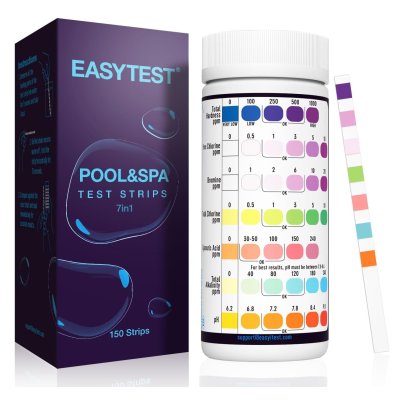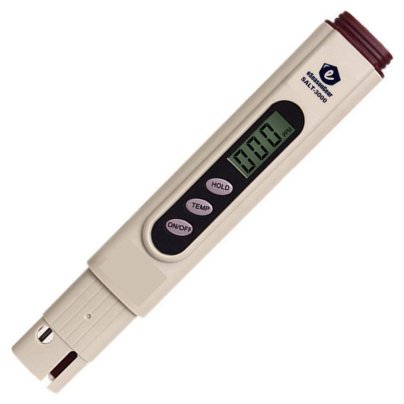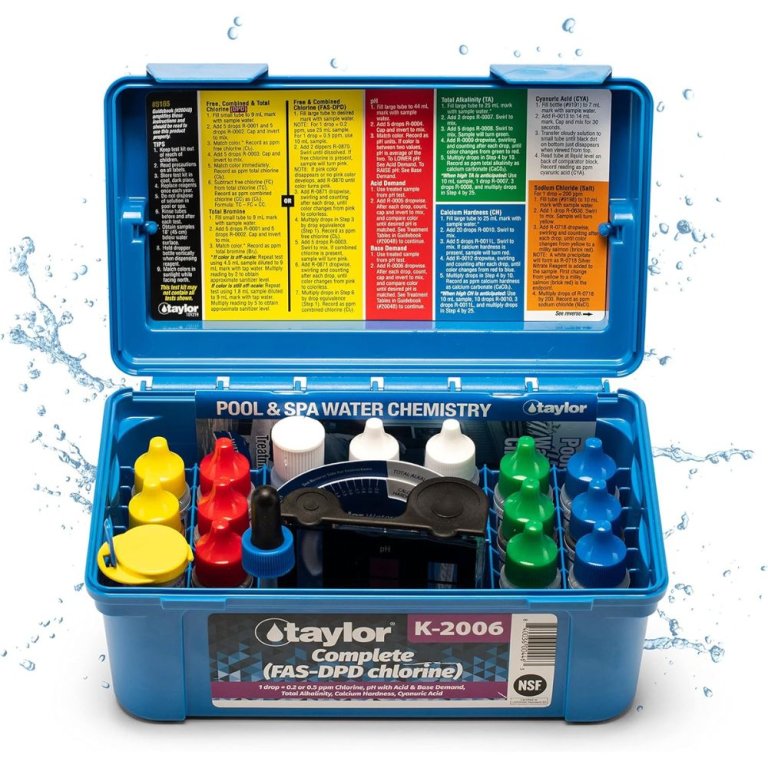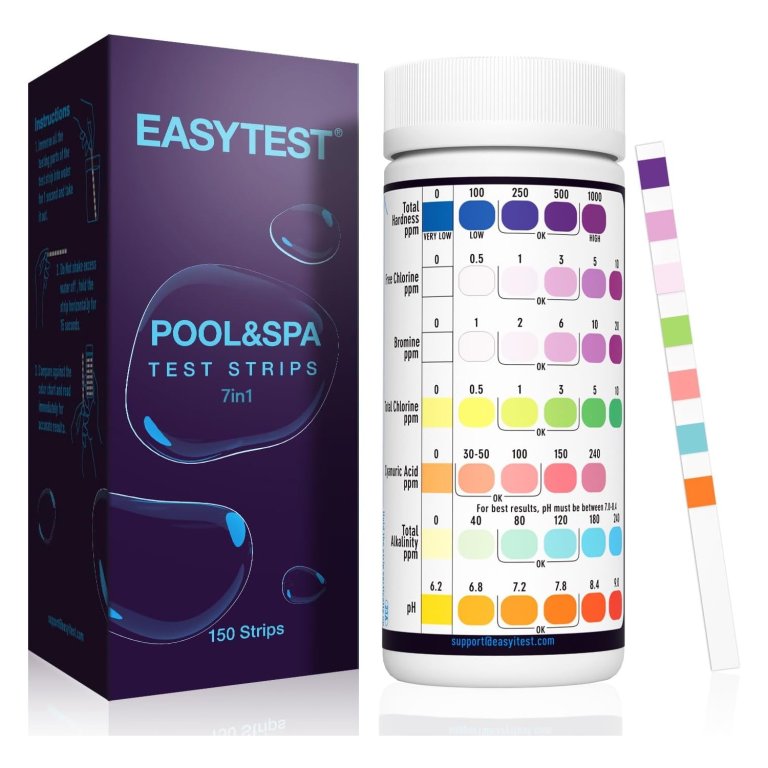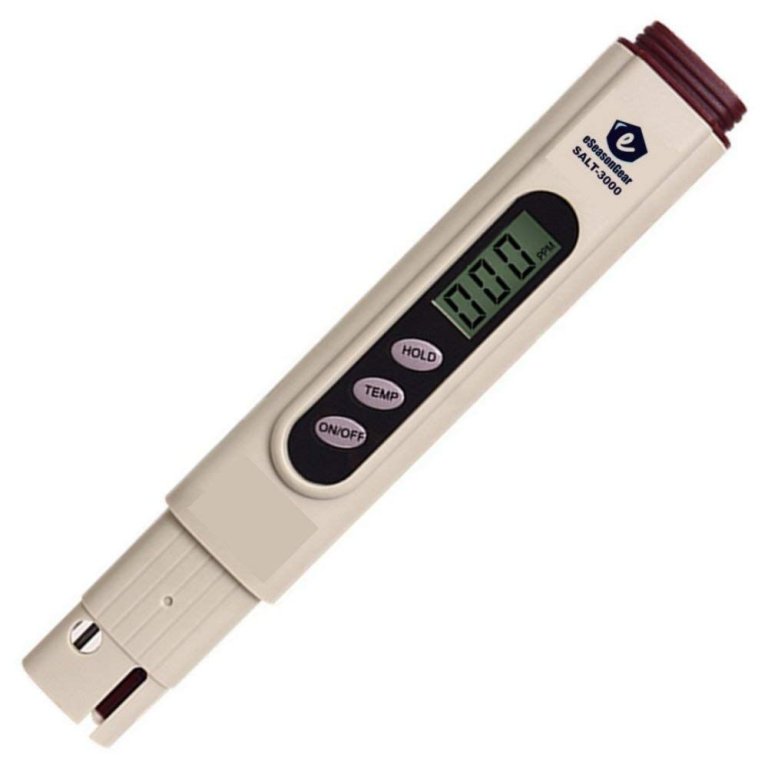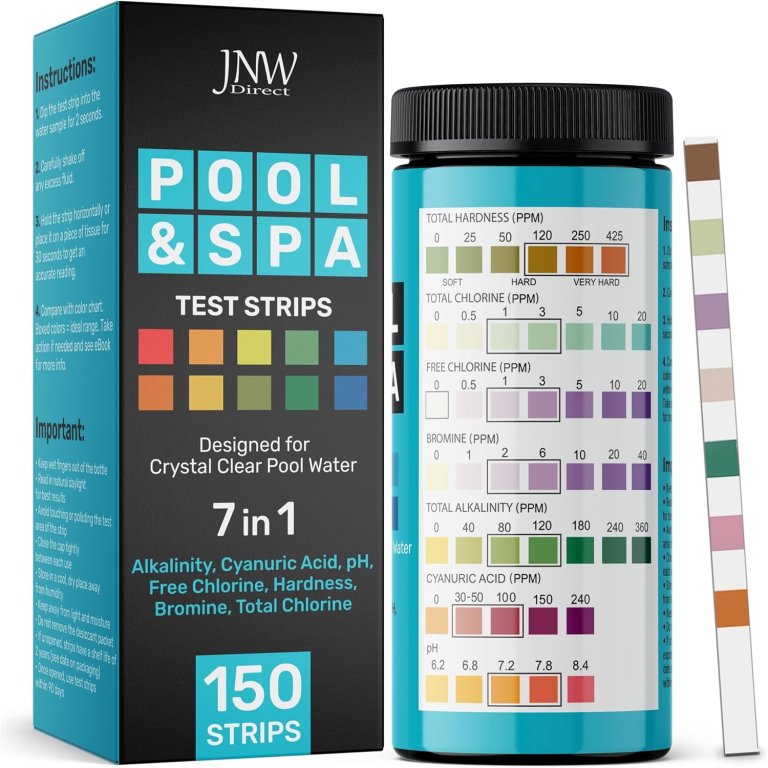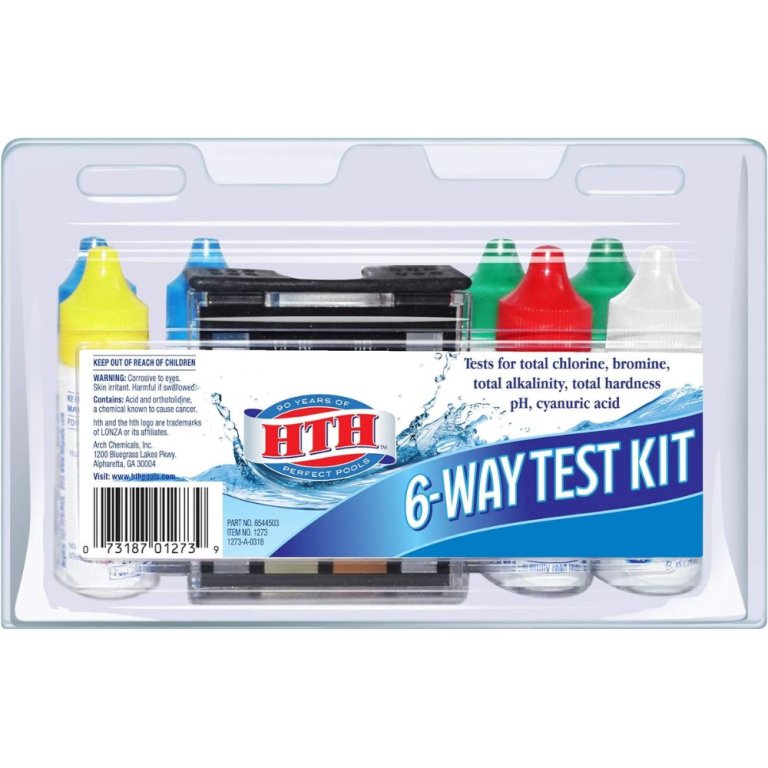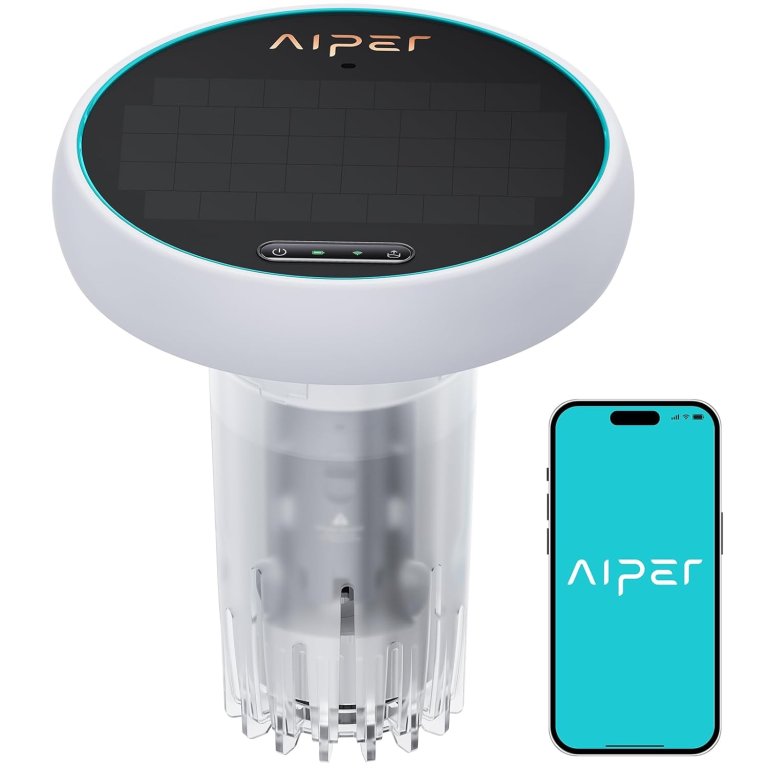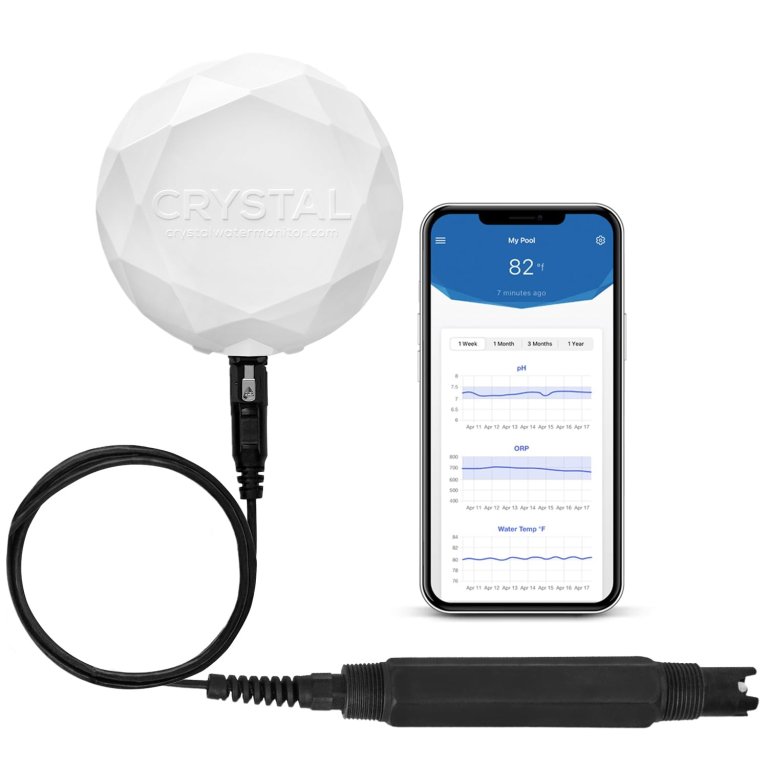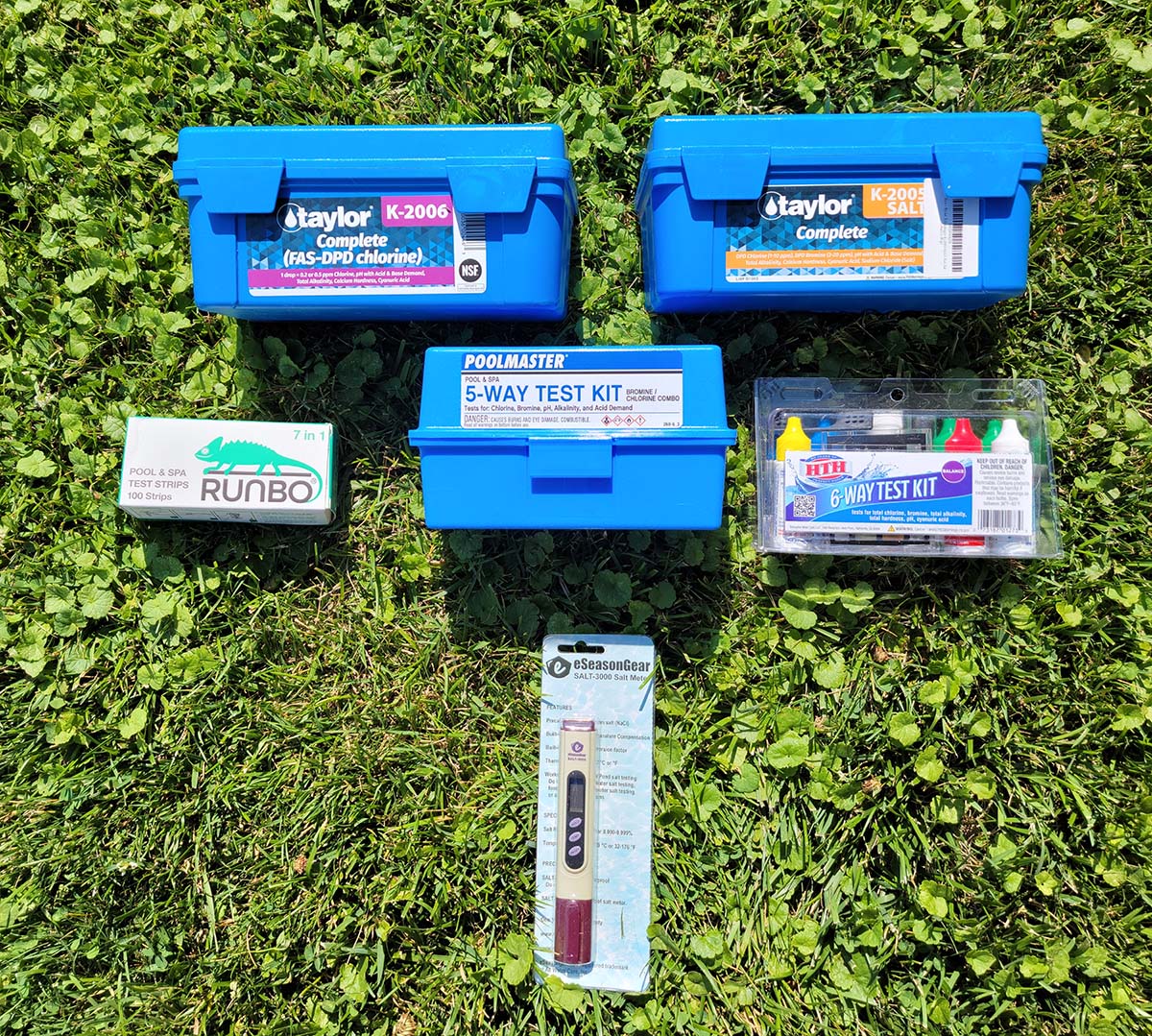
We may earn revenue from the products available on this page and participate in affiliate programs. Learn More ›
A pool test kit is one of the most important tools at a pool owner’s disposal. Whether you’re maintaining a backyard above-ground pool or an in-ground oasis, regularly testing the water helps ensure it stays safe, clean, and crystal clear. To better understand how these kits perform in real-world conditions, we tested 10 popular options, assessing their ease of use, accuracy, and overall value.
Getting the right chemical balance is essential—not only to kill bacteria and prevent algae, but also to avoid irritation to swimmers’ eyes and skin. To support our hands-on testing, we also interviewed Rafi Friedman, president of Coastal Luxury Outdoors in Jacksonville, Florida, who offered expert insights on proper pool care and water chemistry. A reliable pool test kit helps maintain that balance by providing quick readings of chlorine levels, pH, total alkalinity, and other critical factors. Among the kits we tested, the Taylor Technologies K-2006 Test Kit stood out as our top pick for its lab-grade precision, comprehensive readings, and longevity.
To make your decision easier, we’ve also included quick test strips, digital kits, and beginner-friendly options that prioritize convenience while maintaining reliability. Keep reading to find the best pool test kit for your pool care routine.
- BEST OVERALL: Taylor Technologies K-2006 Complete Pool Test Kit
↓ Jump to Review - BEST BANG FOR THE BUCK: EasyTest 7-Way Pool Test Strips
↓ Jump to Review - BEST SALTWATER MONITOR: eSeasonGear Salt-3000 Pool & Pond Salt Water Meter
↓ Jump to Review - EASIEST TO USE: JNW 7-in-1 Pool Test Strips
↓ Jump to Review - BEST STARTER KIT: HTH Swimming Pool Care 6-Way Test Kit
↓ Jump to Review - BEST SMART: Aiper HydroComm Pro Smart Pool Monitor
↓ Jump to Review - BEST DIGITAL: Crystal Smart Water Monitor
↓ Jump to Review
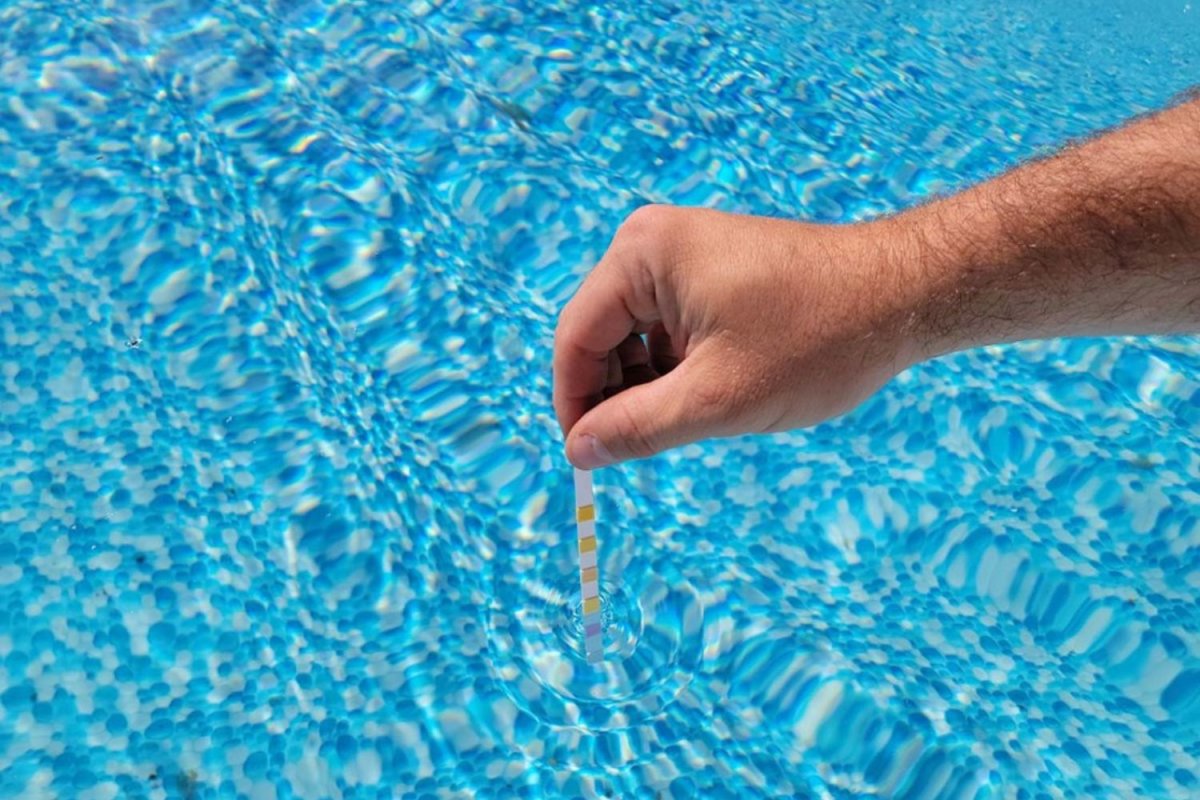
Pool Test Kits Comparison
| Product | Test type | Water type | Test elements |
| Taylor Technologies K-2006 Complete Pool Test Kit | Liquid | Chlorine, saltwater, bromine (bromine requires manual calculation) | Free and total chlorine, pH level, acid and base demand, calcium hardness, total alkalinity, and cyanuric acid |
| EasyTest 7-Way Pool Test Strips | Strips | Chlorine, saltwater, bromine | Bromine, total alkalinity, pH, free chlorine, total hardness, cyanuric acid, and total chlorine |
| eSeasonGear Salt-3000 | Digital | Saltwater | Salinity, temperature |
| JNW 7-in-1 Pool Test Strips | Strips | Chlorine, saltwater, bromine | Total hardness, total chlorine, free chlorine, bromine, alkalinity, cyanuric acid, and pH |
| HTH Swimming Pool Care 6-Way Test Kit | Liquid test kit | Chlorine and saltwater | Total chlorine, bromine, pH, total alkalinity, total hardness, cyanuric acid |
| Aiper HydroComm Pro Smart Pool Monitor | Digital | Chlorine, saltwater, bromine | pH, ORP, RDS, EC and Temperature |
| Crystal Smart Water Monitor | Digital | Chlorine, bromine, saltwater | pH, ORP, and temperature |
Our Top Picks
Make sure your pool’s chemicals are balanced and the pool pump and filtration system are working properly with the help of a pool test kit. We selected the following top products based on kit type, test elements, accuracy, and overall quality.
Best Overall
Taylor Technologies K-2006 Complete Pool Test Kit
What We Like
- Full test kit included
- Can work in conjunction with saltwater tests
- Secure reagent storage keeps test equipment in order
What We Don’t Like
- Vial lid is poorly fitted
Product Specs
- Test type: Liquid
- Water types: Chlorine, saltwater, bromine (bromine requires manual calculation)
- Test elements: Free and total chlorine, pH level, acid and base demand, calcium hardness, total alkalinity, and cyanuric acid
Our Ratings
| Ease of Use | 5/5 | Functionality | 5/5 | Value | 5/5 |
Keep the pool water clean, clear, and safe for use with this Taylor Technologies liquid pool test kit. The titrimetric kit provides a comprehensive collection of reagents, allowing the user to measure various factors in the pool water, including free and total chlorine, pH level, acid and base demand, calcium hardness, total alkalinity, and cyanuric acid (stabilizer) levels.
The Taylor pool test kit is made for chlorine pools, but it can be used in conjunction with a saltwater pool test kit for saltwater pools. It comes in a blue plastic container that has a lid to keep the reagents safe while not in use—they slide into friction-fit grooves for a secure grip. It also includes a water balance calculator to quickly and easily reference the appropriate pH level, calcium hardness, total alkalinity, and more.
This Taylor test kit proved to be a true chemistry experiment during pool water testing. However, it is no more difficult to use than most of the other liquid tests, and we like that it helps determine how much of a particular product it would take to amend the pool pH, alkalinity, or chlorine levels. Our major complaint is that the rubber cap didn’t stay in place during testing, making it a bit of a challenge to maintain accurate water levels.
What our tester says: “This kit feels like a fun chemistry set, but it’s obviously a comprehensive way to test several aspects of your pool water. Once you get the hang of reading the results, it’s a handy tool to have.”—Paul Rankin, Product Reviews tester and writer
Get the Taylor Technologies pool test kit at Amazon, The Home Depot (2-pack), or Walmart.
Best Bang For The Buck
EasyTest 7-Way Pool Test Strips
What We Like
- Extremely easy to use
- Ideal for routine checks
- Clear instructions on bottle
- Budget-friendly for frequent testing
What We Don’t Like
- Some readings were inconsistent
- Total alkalinity may read low
Product Specs
- Test type: Strips
- Water type: Chlorine, saltwater, bromine
- Test elements: Bromine, total alkalinity, pH, free chlorine, total hardness, cyanuric acid, and total chlorine
Our Ratings
| Ease of Use | 5/5 | Functionality | 4/5 | Value | 5/5 |
For pool owners on a budget, the EasyTest 7-Way Pool Test Strips offer a straightforward and affordable way to monitor water quality. These strips are quick to use and require no fancy equipment—just dip, wait, and compare the colors to the chart on the bottle. While the results weren’t identical to other test strips we tried, they were close enough to provide a decent snapshot of the pool’s condition.
During testing, the EasyTest strips showed most readings within or near the expected ranges. pH, cyanuric acid, and total alkalinity were all roughly in line, though alkalinity and pH leaned slightly low. Free chlorine was acceptable, but total chlorine read much higher than it should have, and bromine also came in too high. While not quite matching the results of more sophisticated tests we tried, these inconsistencies are expected at this price point—and the strips still give pool owners a useful reference for quick checks between professional tests or more advanced kits.
For those looking for an inexpensive backup or a simple way to test their pool water weekly, EasyTest strips are a solid choice that won’t strain the budget.
Get the EasyTest pool test strips at Amazon or Walmart.
Best For Saltwater
eSeasonGear Salt-3000 Pool & Pond Salt Water Meter
What We Like
- Ready to go out of the box
- Very easy to use
- Hold button locks reading in for easy viewing
What We Don’t Like
- Took some time to stabilize the readings
- Only works on saltwater pools and koi ponds
Product Specs
- Test type: Digital
- Water type: Saltwater
- Test elements: Salinity, temperature
Our Ratings
| Ease of Use | 4/5 | Functionality | 4/5 | Value | 3.5/5 |
This eSeasonGear digital pool tester is small enough to carry safely in a pocket or tuck into a bag with other pool maintenance supplies (although the tester should be isolated from contaminating products, so users may want to store it in a ziplock bag). It operates on a pair of LR44 batteries (included) and is controlled by three simple buttons.
The digital water tester is designed specifically for use with saltwater pools and koi ponds. With this purpose in mind, it can measure water temperatures between 32 degrees and 130 degrees Fahrenheit, and it can also measure the salt content of the water. The device has a salt range from 0 to 5,000 ppm (parts per million), and it’s relatively inexpensive for a digital product.
Our eSeasonGear meter was ready to go right out of the box—even the needed batteries were included. Though we didn’t have access to a saltwater pool for testing, we were able to give this digital water tester a whirl with a sample cup. We found that the eSeasonGear is as easy to use as it gets—it literally requires just sticking the probe end in the water. It did seem to take a while for the reading to stabilize. However, once it did stabilize, hitting the “hold” button locked the reading in, allowing us to check the readings after removing the probe from the water.
Get the eSeasonGear digital pool water tester at Amazon.
Easiest To Use
JNW 7-in-1 Pool Test Strips
What We Like
- Incredibly simple to use
- Fast, mess-free results
- Clear instructions and chart
- Great for weekly checks
What We Don’t Like
- Alkalinity reading seemed off
- Not as precise as lab kits
Product Specs
- Test type: Strips
- Water types: Chlorine, saltwater, bromine
- Test elements: Total hardness, total chlorine, free chlorine, bromine, alkalinity, cyanuric acid, and pH
Our Ratings
| Ease of Use | 5/5 | Functionality | 4/5 | Value | 4.8/5 |
For those looking for one of the easiest ways to check their pool’s water quality, the JNW Pool and Spa Test Strips are hard to beat. Just dip one of the swimming pool test strips into the water, hold it still for a few seconds, and watch the squares change color. The side of the bottle clearly shows what each color means and the ideal range for seven key metrics, so there’s no need to second-guess the results.
During testing, we found the strips reliably gave us a quick snapshot of overall water chemistry. In our pool, free chlorine, pH, and cyanuric acid were all in the ideal range. Chlorine and bromine read slightly high, and total hardness came back as very hard. The only major outlier was total alkalinity, which registered at zero. Still, for routine at-a-glance testing, these strips are impressively user-friendly—perfect for anyone who wants to spot-check their pool before diving in.
While they don’t offer the pinpoint accuracy of professional kits, the ease of use and affordability make JNW strips a smart tool to keep nearby.
Get the JNW pool test kit at Amazon or Kmart.
Best Starter Kit
HTH Swimming Pool Care 6-Way Test Kit
What We Like
- Great intro to pool chemistry
- Clear instructions for each test
- Reliable, easy-to-use dropper bottles
- Good value for a liquid kit
What We Don’t Like
- Reading the results can be tricky
- Requires more time and attention than others
Product Specs
- Test type: Liquid test kit
- Water types: Chlorine and saltwater
- Test elements: Total chlorine, bromine, pH, total alkalinity, total hardness, cyanuric acid
Our Ratings
| Ease of Use | 3.8/5 | Functionality | 4/5 | Value | 4/5 |
The HTH 6-Way Test Kit is a great starter option for pool owners who want to gain a deeper understanding of their pool’s water chemistry. Instead of quick-dip strips, this kit uses a liquid reagent method that walks users through testing six key parameters, including chlorine, pH, and total alkalinity. It’s a bit more involved than strip tests, but the hands-on process gives beginners a helpful crash course in how pool chemistry actually works.
The kit includes easy-to-read instructions and high-quality dropper bottles that make it simple to dispense the correct number of drops. While it does take longer than strip testing, the experience can be more satisfying, like running a mini science experiment. The main challenge is interpreting the final color results, which aren’t quite as intuitive as the quick-glance charts on test strip bottles. There’s also more room for error if users mismeasure or miscount, but that’s a learning curve most new pool owners can handle.
For shoppers who want to move beyond strips without committing to a digital tester, the HTH kit is a smart and affordable place to start.
Get the HTH pool test kit at Amazon, Lowe’s, Ace Hardware, The Home Depot, or Walmart.
Best Smart
Aiper HydroComm Pro Smart Pool Monitor
Pros
- Tests for salinity, chlorine, bromine, pH, alkalinity, hardness, and more
- Helps users determine what and how much to add to the pool
- Secure box with storage for individual bottles; keeps all components organized and safe
Cons
- Test cap didn’t fit securely; may leak while in use
Product Specs
- Test type: Liquid
- Water types: Chlorine and saltwater, but primarily designed for saltwater
- Test elements: Salinity, chlorine, bromine, pH, alkalinity, hardness, cyanuric acid, acid demand, and base demand, as well as water balance calculator
Our Ratings
| Ease of Use | 4.5/5 | Functionality | 5/5 | Value | 4.3/5 |
For pool owners who want a high-tech, low-effort way to stay on top of water quality, the Aiper HydroComm Pro is an excellent option. Setup is as simple as syncing the smart device with the Aiper app and placing it in the pool. From there, it automatically monitors key water parameters using built-in probes and delivers real-time updates straight to a smartphone. The app’s clean interface makes it easy to track trends, and it even provides suggestions for how to improve water chemistry. It’s solar-powered, too, so it could spend days at a time floating around the pool without a hitch (assuming the pool gets enough sunlight to keep it going).
While it’s definitely a step up in both price and features, the HydroComm cost is justified by its convenience and long-term value. It comes with everything needed to keep the device in good shape, including a charging base, a lanyard to keep it tethered to the poolside, and a wet storage cap for Probe 1 to prevent it from drying out. The unit itself is fairly large, yet it’s lightweight and unobtrusive once floating in the pool.
For those ready to invest in smart pool care who want a modern, automated solution, the Aiper HydroComm is a powerful tool that will keep users informed without the need for guesswork.
What our tester says: “I loved that this gadget was really set-and-forget. While it’s a little chunky in the water, if you tether it to a corner, it’ll quietly keep an eye on the water quality and ping your phone with all the useful stats.”—Paul Rankin, Product Reviews tester and writer
Get the Aiper HydroComm Pro at Amazon, Best Buy, or Aiper.
Best Digital
Crystal Smart Water Monitor
What We Like
- Tracks chlorine levels in real time
- Easy setup after initial connection
- Great customer support and onboarding
- Subscription covers sensor replacements
What We Don’t Like
- Expensive upfront cost
- Subscription is basically required
Product Specs
- Test type: Digital
- Water type: Chlorine, bromine, saltwater
- Test elements: pH, ORP, and temperature
Our Ratings
| Ease of Use | 5/5 | Functionality | 5/5 | Value | 4.8/5 |
Pool owners looking for high-tech, hands-off pool maintenance, this pool water monitoring system from Crystal is a standout option, especially for homeowners who care most about keeping sanitizer levels in check. Our tester tested the system in his own pool and, aside from a few brief hiccups during the initial sync, the setup was relatively smooth. Once connected, it stayed reliably online and immediately began providing clear, easy-to-read data on the water quality.
One thing we really appreciated was the real-time insight into chlorine levels. Watching how they fluctuate over the week helps users time their treatments more effectively. Most cheaper test kits don’t focus on sanitizer as precisely, so this felt like a meaningful upgrade.
Customer support is another big plus. Crystal is a newer company, but they’re clearly committed to service: every customer gets the option for a one-on-one onboarding call to walk through the system and ask questions.
The main drawback? The price. The device itself costs around $450, and while it includes a 1-year subscription, users will need to pay $99 per year after that to maintain full functionality. Without the subscription, users will lose access to alerts, maintenance suggestions, and critically, the sensor replacement plan. That last point alone makes the subscription worthwhile—buying a replacement sensor out of pocket would be a serious blow to the wallet.
Bottom line: For pool owners who want constant, accurate monitoring and smart recommendations for maintaining their pool, Crystal is absolutely worth it, provided they’re comfortable with the upfront investment and ongoing subscription.
Get the Crystal pool water monitoring system at Amazon.
Jump to Our Top Picks

How We Tested the Best Pool Test Kits
| Testing Stats | |
| Products tested | 7 |
| Time spent testing | 2 weeks |
| Tests performed | 5 |
| Price range | $10 to $450 |
Before we could put together a list of the best pool test kits, we wanted to perform some tests of our own. We needed to ensure that each kit could deliver on its claims and provide enough value for its price point. Admittedly, the chemistry of the pool we tested was way out of whack, but it proved to be the perfect testing point.
First, we opened each kit and followed the directions to test all the different elements. In the process, we took note of how easy they were to use and understand, as well as which ones felt overwhelming. Next, we compared the elements and convenience of each kit with its price point to ensure that it provided enough value. Pool test kits that were either too difficult to use or too expensive for their purposes were tossed aside, while those that passed were given awards based on their strengths.
| Product | Ease of Use | Functionality | Value | ||
| Taylor Technologies K-2006 Complete Pool Test Kit | 5/5 | 5/5 | 5/5 | ||
| EasyTest 7-Way Pool Test Strips | 5/5 | 4/5 | 5/5 | ||
| eSeasonGear Salt-3000 | 4/5 | 4/5 | 3.5/5 | ||
| JNW 7-in-1 Pool Test Strips | 5/5 | 4/5 | 4.8/5 | ||
| HTH Swimming Pool Care 6-Way Test Kit | 3.8/5 | 4/5 | 4/5 | ||
| Aiper HydroComm Pro Smart Pool Monitor | 4.5/5 | 5/5 | 4.3/5 | ||
| Crystal Smart Water Monitor | 5/5 | 5/5 | 4.8/5 |
What to Consider When Choosing a Pool Test Kit
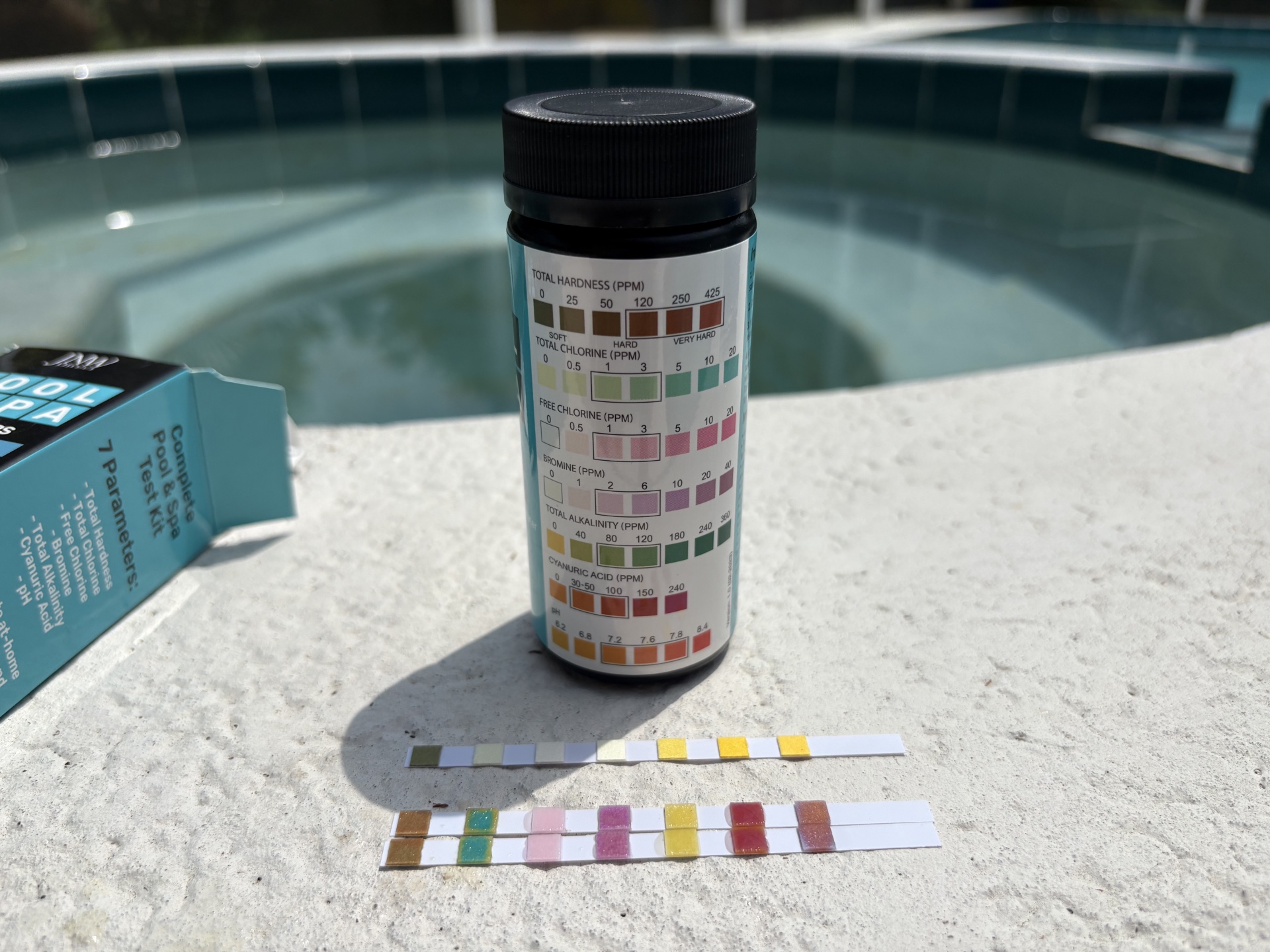
When maintaining their pools, DIY pool technicians shouldn’t settle on just any pool test kit without knowing their specific pool needs. Consider the type of pool test kit, the water type, and the various test elements, including alkalinity, pH, calcium hardness, and more.
Rafi Friedman, president of Coastal Luxury Outdoors, notes that one of the easiest mistakes to make when testing pool water is not taking care of the testing equipment. “You should always clean and calibrate your sensors before every test, and you should never leave your testing equipment out over the winter, as this can permanently damage it. Store your sensors and your chemicals indoors in a cool, dry place when not in use.”
Read on to find more important shopping tips and details to help choose the best pool test kit.
Type
There are three types of pool test kits: liquid test kits, test strips, and digital test kits. Ultimately, they perform the same checks on the pool water, but they do so in different ways.
- Liquid pool test kits are also called titrimetric pool test kits. These are the most commonly used test kits because of their relatively affordable price and high level of accuracy. However, liquid test kits may be the most difficult to use because they require the user to collect a sample of pool water, then apply the correct number of reagent drops to the water to determine the balance of chemicals and pH in the pool water. The kits typically come with two to seven dropper bottles, each with a unique reagent to analyze the pool water.
- Pool test strips are also known as colorimetric pool test kits. They are simple to use and inexpensive, but the results are not as accurate as a liquid or digital test kit. This assessment consists of dipping the strip into a pool water sample and then matching the color to an included chart. Accuracy becomes a bigger problem if more than one person is testing the water, because there is an unavoidable degree of subjectivity involved in interpreting the color results on the strip, which can lead to different people interpreting the results differently. These test kits normally analyze up to seven factors with just one strip.
- Digital pool test kits use a set of metallic probes to check the pool water. After being inserted into a sample of pool water, the probes reveal readings on the electronic display, allowing users to check the pH levels or chlorine balance in just a few seconds. The drawback with these devices is that they are usually capable of measuring only one or two factors, so users may end up with separate digital testers for chlorine and pH level. They are also typically more expensive than liquid test kits or test strips.
Water Type
The type of pool water—saltwater, chlorine, or bromine—will determine which types of test kits can be used to accurately measure pH, alkalinity, calcium hardness, stabilizer, and chlorine levels.
- Saltwater pools use a salt-chlorine generator to produce the proper amount of chlorine for the pool. However, this means that a saltwater pool test kit needs to be able to analyze the water for the proper amount of salt as well as check the chlorine levels, pH level, and additional factors, such as total alkalinity. The saltwater tests may be sold separately from the standard pool test kit; in this case, users will need to invest in both products for proper pool maintenance.
- Chlorine pools operate with a pump and filtration system that circulates chlorine through the water to prevent bacteria and algae from multiplying in the pool water. These pools can use a standard test kit for pH and chlorine levels, or users can invest in a more comprehensive pool test kit capable of checking up to seven factors, including cyanuric acid, bromine, and calcium hardness.
- Bromine pools are essentially the same as chlorine pools except that the health and clarity of the water are managed with bromine instead of chlorine. Even the test kits used for these pools are the same because they share a common reagent; both chlorine and bromine can be assessed with orthotolidine as a reagent.
Test Elements
When selecting a pool test kit, it’s important to determine the factors the kit can detect. For instance, not all digital or liquid test kits are capable of measuring calcium hardness, alkalinity, or cyanuric acid. However, even a basic test kit can assess the pH balance as well as the chlorine and bromine levels.
This list is not exhaustive, but these are the most common factors checked with pool test kits:
- Chlorine levels should range between 1 and 3 parts per million (ppm) to ensure that the water has enough chlorine to prevent algae and bacteria but is not over chlorinated, which can cause eye or skin irritation.
- Bromine levels have a slightly larger range than chlorine, with an ideal pool water solution containing between 2 ppm and 6 ppm.
- The ideal pH level of the pool water should fall between 7.2 and 7.8 on the pH scale. Water that is lower than 7 is considered to be acidic and can cause itching, burning, and rashes. Water with a pH balance above 7.8 is also hazardous because the basic solution can burn and irritate the eyes.
- Total alkalinity measures the levels of carbonate and bicarbonate in the water. It should remain between 80 ppm and 120 ppm for the pool water to be considered safe.
- The calcium hardness is another common test and should range between 200 and 400 ppm (or sometimes higher).
- Cyanuric acid is also known as the stabilizer because it’s used to help prevent chlorine from breaking down under direct sunlight. The stabilizer should stay between 30 ppm and 50 ppm for the pool to be balanced.
Accuracy
The accuracy of a pool test kit can vary between specific products and even between users, depending on the type of test kit.
- Liquid pool test kits have a very high accuracy level when used properly. However, these kits require the user to collect a sample of pool water, add specific reagents, then compare the color results to a provided scale. Unfortunately, this overly involved process has a lot of room for human error, which can affect the results.
- Pool test strips are less accurate than liquid test kits, though they are much easier to use. However, they are also subject to human error and the subjective interpretation of color-coded results.
- Digital pool test kits are the most accurate option. The electronic display clearly indicates the exact measurement, typically to within 1 or 2 percent. These devices have two major drawbacks: the high initial cost, and the fact that they measure only one or two factors.
Ease of Use
A pool test kit is used to assess the chemical composition of the pool water. As with any chemical test, the methodology and ease of use can affect the outcome of the results, especially if the steps are overly complex and rely on subjective interpretation.
- Liquid pool test kits are the most difficult to use and the easiest to misinterpret. This is because the test involves applying liquid reagents to samples of pool water with small droppers. Applying too many drops, too few drops, or the wrong drops will affect the outcome. After this process, the results are compared to a color-coded chart, which can lead to subjective interpretations. However, if the measurement is completed correctly, liquid pool test kits are one of the most accurate options.
- Pool test strips share the same subjective limitations to their accuracy, but these tests are incredibly easy to use. Just dip the test strip in a sample of pool water, allow it to change color, then compare the colors on the test strip to the included color-coded chart.
- Digital pool test kits are accurate and easy to use. The device needs to be turned on and set to the correct menu. Once the device is ready, the user submerges the metallic testing prongs into a sample of pool water, and the results of the assessment will automatically be displayed on the screen after just a few seconds. This ease of use makes digital test kits the best option for single-factor measurements, such as pH or chlorine levels.
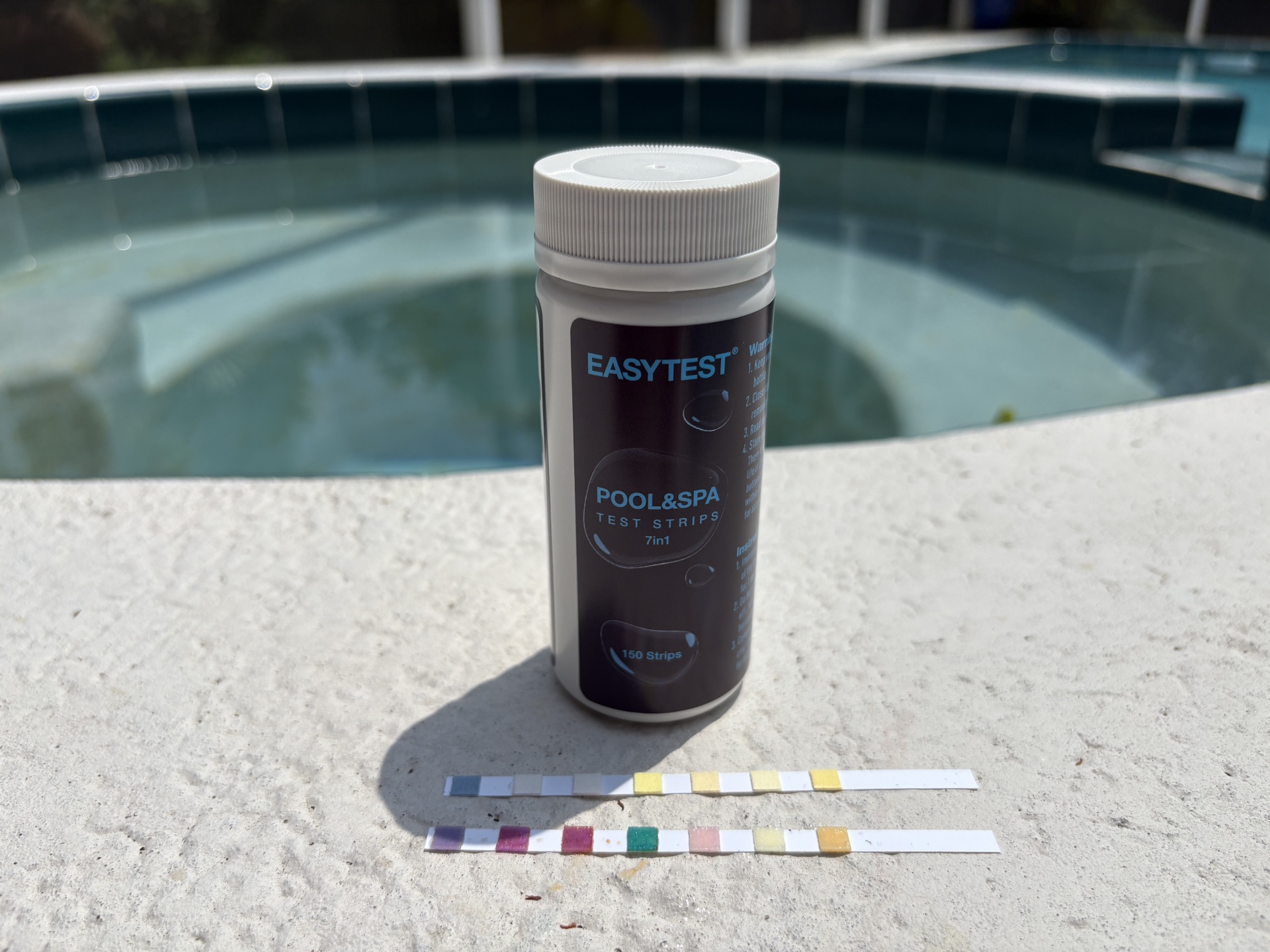
FAQs
Using a pool test kit may seem complicated, especially if pool owners don’t know how it works, when it should be used, and if it needs to be replaced. For the answers to these questions and more, take a look below.
A pool test kit comes with various reagents that need to be added to pool water samples to measure the pH and chemical balance of the water. Some test kits have just two reagents, but others can have as many as seven, depending on the various chemicals the test kit is designed to detect.
Some high-end digital pool testers can be accurate to within +/- 1 percent. Pool test kits require a person to manually add drops, which can affect the accuracy of the result. However, if pool test kits are used exactly as intended, they are as accurate as a digital pool tester and more affordable.
According to Friedman, “It’s best to test your pool water 2 to 3 times per week during the season. It’s much easier to correct for chlorine, pH, and alkalinity imbalances when you catch them early. The more you use your pool, the more you’ll want to test it.”
Pool test kits contain reagents that can break down over time. Look for the expiration date on the product and be sure to replace the pool test kit if it has expired.
Wait at least 24 hours before testing your water.
Ideally, chlorine should be between 1.0 and 3.0 ppm.
Shock your pool every 1 to 2 weeks, or as needed.
Test in the early evening for the most accurate results. It’s important to try to test at the same time of day each time, since levels will naturally fluctuate throughout the day, leading to different—and potentially misleading—results if you test in the morning one time, then mid-afternoon the next.
Test kits are often more accurate, but they take more time.
Meet the Testers
Paul Rankin is a Florida-based product reviewer and pool owner who has tested a wide range of pool maintenance tools in real-world conditions. He takes a straightforward, hands-on approach that emphasizes ease of use, accuracy, and long-term value to help readers make confident, informed buying decisions.
Tom Scalisi is a freelance writer and has been involved in the trades for over 15 years as both a contractor and a commercial building mechanic.

